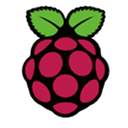Uncovering the Best Tiny Core Linux Alternative for Your Needs
Tiny Core Linux (TCL) is renowned for its incredibly small footprint, weighing in at under 12 megabytes, and its unique modular design. It’s a minimalist Linux operating system, perfect for those seeking a highly efficient, RAM-based system with an emphasis on core functionality. However, its specialized nature and extreme minimalism might not suit everyone. If you’re looking for a similar lightweight experience but with slightly different features, a more familiar interface, or broader hardware compatibility, exploring a Tiny Core Linux alternative is a smart move.
Top Tiny Core Linux Alternatives
While Tiny Core Linux excels in its niche, several other distributions offer compelling advantages, whether you need more out-of-the-box functionality, a larger community, or support for specific hardware. Let's delve into some of the best alternatives.

Lubuntu
Lubuntu is a fast and lightweight operating system built on Linux, utilizing the minimal desktop environments LXDE/LXQT. As a Free and Open Source solution, it offers a clean and user-friendly interface, making it an excellent Tiny Core Linux alternative for those who appreciate a lightweight system but desire a more traditional desktop experience. Its compatibility with Debian packages and its basis on Ubuntu provide access to a vast software repository, differentiating it from TCL's highly modular, extension-based approach.

Raspberry Pi
While not an operating system itself but a platform, the Raspberry Pi ecosystem often runs lightweight Linux distributions, making it a compelling alternative for those seeking a low-cost, compact computing solution similar to the scenarios where Tiny Core Linux might be deployed. This Commercial Linux-based platform, particularly known for its ARM support and use in education, enables users to build small, efficient systems that can perform many desktop PC tasks, extending beyond TCL's primary focus on an ultra-minimal base system.

Puppy Linux
Puppy Linux is a Free and Open Source Linux distribution specifically designed for ease and speed, much like Tiny Core Linux, but often with more out-of-the-box functionality. It boasts lightweight characteristics, can run from a LiveUSB, and is highly portable, making it a strong Tiny Core Linux alternative for users who prioritize running a full operating system from RAM with a slightly richer application set without sacrificing performance.

Haiku
Haiku is an independent, Free and Open Source operating system inspired by BeOS. It targets personal computing with a focus on speed, simplicity, and ease of use. While not a Linux distribution, its lightweight nature, native GUI, excellent multitasking, and robust package manager make it an intriguing Tiny Core Linux alternative for users looking for a fast, responsive system with a unique, intuitive user interface that is different from typical Linux distributions.

SliTaz
SliTaz is a Free and Open Source Linux distribution known for its incredibly small size, working entirely in RAM and booting from removable media like a CD-ROM or USB key. Similar to Tiny Core Linux in its portability and lightweight design, SliTaz is distributed as a LiveCD and offers a complete, yet compact, operating system experience, making it an excellent alternative for those who need a portable Linux system with more pre-installed features than TCL.

Alpine Linux
Alpine Linux is a Free and Open Source, security-oriented, lightweight Linux distribution based on musl libc and busybox. Its focus on security and efficiency makes it a compelling Tiny Core Linux alternative, especially for server environments, containers, or embedded systems where a minimal footprint and strong security posture are paramount. While both are lightweight and utilize BusyBox, Alpine Linux offers a different set of optimizations and a stronger emphasis on security features.

KolibriOS
KolibriOS is a tiny, incredibly powerful, and fast operating system that requires minimal disk space and RAM, making it highly comparable to Tiny Core Linux in its resource efficiency. As a Free and Open Source, Self-Hosted solution, KolibriOS features a rich graphical environment despite its small size. It serves as a fascinating Tiny Core Linux alternative for those interested in exploring ultra-compact operating systems that are not Linux-based, offering a unique approach to lightweight computing.

EndeavourOS
EndeavourOS is a Free and Open Source Linux distribution that provides an easy-to-use installer for Arch Linux, coupled with a supportive community. While generally more resource-intensive than Tiny Core Linux, it stands as an alternative for users who appreciate the rolling release model and customization potential of Arch, but seek a more straightforward installation and a friendly support network. It's for those moving beyond extreme minimalism towards a customizable, modern Linux experience.

Damn Small Linux
Damn Small Linux (DSL) is a highly versatile, compact, and desktop-oriented Linux distribution, famously fitting into 50MB. As a Free and Open Source system available across Mac, Windows, and Linux platforms, DSL shares Tiny Core Linux's core philosophy of extreme lightness and versatility. It’s an excellent Tiny Core Linux alternative for those who need a full desktop environment in a tiny package, capable of a wide range of tasks while maintaining minimal resource usage.

Porteus
Porteus is a complete Free and Open Source Linux operating system optimized to run from various bootable media, including CD, USB flash drives, and hard drives. With a size under 300MB, it offers a lightweight and portable Linux experience. As a Tiny Core Linux alternative, Porteus provides a more comprehensive set of applications and a richer desktop environment while still maintaining impressive speed and portability, including LiveUSB capabilities and a small footprint.
Choosing the ideal Tiny Core Linux alternative depends entirely on your specific requirements. Whether you prioritize an even smaller footprint, a more familiar desktop environment, broader hardware support, or specific security features, there’s a lightweight operating system out there to meet your needs. Explore these options and find the perfect fit for your next project or daily computing.